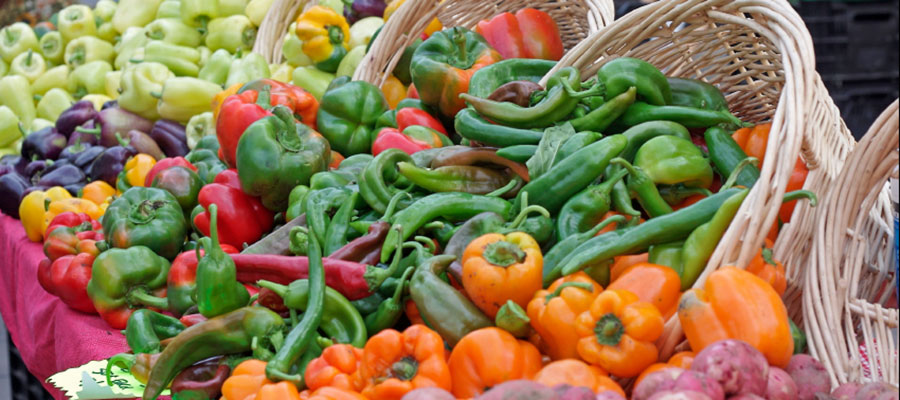The Farmers’ Food Donation Tax Credit misses the mark in food security

On February 25 BC joined Ontario and Quebec in offering farmers a tax incentive for donating to food assistance programs, such as food banks or school meal programs. Promised in last month’s budget, the Farmers’ Food Donation Tax Credit provides individuals or businesses registered as farms a 25% credit on any donated animal or plant product grown, raised or harvested in BC. The food must be minimally processed, which excludes pickling or preserving of any kind.
The tax credit fails to address the root causes of hunger
Both food bank and local farm advocacy groups have called for tax incentives like this for a number of years. Food banks have a persistent shortfall in high-quality, nutritionally dense food stocks including fresh fruits and vegetables. Although the size of the need varies seasonally, the hope is that the tax credit will increase overall donations and encourage more consistent donations throughout the year. For local farm groups, tax credits are applauded as a way to help offset the costs of production and recoup some investments in times of overproduction.
On the surface, it’s a creative win-win solution. However, food banks are not the solution to food insecurity, either in the short or long term and should not be treated as a de facto public policy. According to Foodbanks BC, most organizations aim to provide 3 or 4 days worth of food every two weeks. Although the tax credit attempts to address this problem, it will not solve it entirely as there is no indication that the quantity of food available is anywhere close to enough to address current levels of deprivation, hunger and malnutrition. Moreover, access to aid is inconsistent across the province, with the majority of organizations concentrated in Metro Vancouver and Victoria. Rural, and particularly northern and First Nations, communities already experiencing a higher vulnerability to food insecurity have the lowest availability of charitable food assistance.
If the BC government were truly concerned about either food insecurity in this province or bolstering local farm incomes, it would take steps to address the public policies that are creating the poverty, insecurity and underemployment that bring people to food banks, rather than grocery stores (not to mention farmers markets) in the first place.
Food banks were intended to be a short-term solution
As Valarie Tarasuk, Naomi Dachner and Rachel Loopstra note in their review of food insecurity in Canada, food banks are not government social assistance; they are extra-governmental, voluntary, charitable programs and receive very little if any public funding. Although soup kitchens have existed since the early 20th century, food banks as we recognize them today began to proliferate in the 1980s as a short term response to recession-related unemployment and food insecurity. The reduction of social service benefits, including unemployment insurance, social housing, old age pensions, and mental health programs, combined with sluggish employment and wage growth has magnified food insecurity over the last three and a half decades. Food bank use in BC rose 28% between 2008 and 2015, with approximately 100,086 individuals and families served in March of 2015 alone. There is an uncontested connection between the need for public social services and food bank use. Of BC residents who sought out aid in 2015, 33.1% received their primary income from social assistance, 31.7% from disability benefits and 8.2% from pension. What was meant to be a stopgap has evolved into a permanent measure to fill the widening holes in the social safety net.
Real action on hunger is possible
If we view food assistance programs as what they are meant to be – emergency aid programs – rather than solutions to hunger, then tax credits that encourage donations of what would otherwise be wasted or recycled food should be celebrated. However, my excitement is muted by the BC government’s lack of meaningful engagement with the root causes of poverty and under/unemployment. The 2016 budget offered a little help by exempting children from MSP premiums, promising $11 million to new child support centres, and committing to 2000 new affordable housing units over 5 years. These are drops in the bucket though. A truly effectively plan to address food insecurity in this province would be better to include:
- Raising the minimum wage to a living wage, which should be based on the level necessary to meet basic needs, including sufficient and appropriate food to meet dietary requirements. The current wage of $10.45/hour leaves many British Columbians well below the poverty line, even if working full time.
- Protecting and increasing the stock of rental, including cooperative and social housing. BC residents in the lowest economic quartile, those most likely to access food bank services, pay upwards of 90% of their income towards housing.
- Providing not just more, but more affordable child care. For many BC families, child care costs dwarf the cost of all other expense outside of housing. Adopting the $10 a day plan would be ideal, however, given the government’s silence on the issue, any subsidy would be a move in the right direction.
- Decoupling skills development programs, such as the Single Parent Employment Initiative, from income assistance eligibility so that all BC residents are able to access the training they need to enter the labour market or improve their employment opportunities.
- Reforms to the services available to disabled British Columbians, including an increase in total disability benefit payments to reflect the increased cost of living since 2007. In February 2016, the Ministry of Social Development and Social Innovation streamlined the application process for disability benefits, making it easier for persons in need to access aid. However, we should be thinking beyond financial assistance to measures that will increase access to education and skills development for people with disabilities and work with employers to reduce stigma and stereotyping to make it easier for them maintain or gain employment.
The BC Farmers’ Donation Tax Credit is not without merit and will likely increase the availability of fresh and whole foods to food banks and other charitable food aid organizations as it has in other provinces. But at the end of the day, it is an imperfect and temporary solution to tackle food insecurity and hunger in this province.
Topics: Economy, Poverty, inequality & welfare


